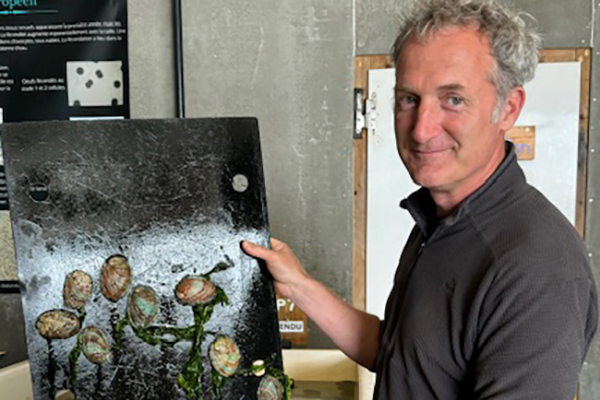
Intelligence
Abalone, against all odds: How one French shellfish producer learned to survive
France Haliotis illustrates how determination can make the difference between survival and success in abalone aquaculture.
Fisheries
Abalone are vulnerable to climate stressors and require restoration aquaculture, reductions in fishing pressure, MPAs and other measures.

Intelligence
France Haliotis illustrates how determination can make the difference between survival and success in abalone aquaculture.
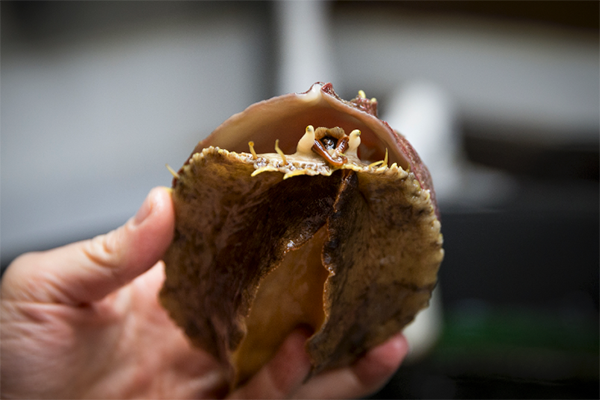
Responsibility
All West Coast abalones are now listed as at risk for extinction on the IUCN Red List of Threatened Species.
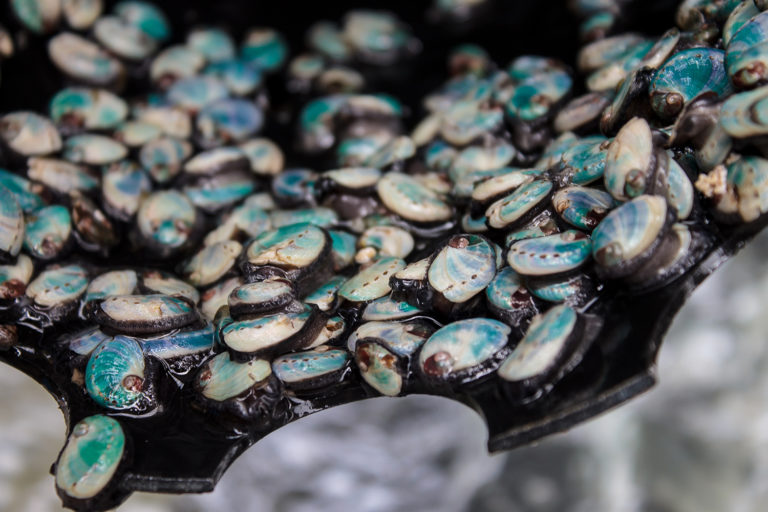
Responsibility
Poaching has plagued South Africa’s abalone to the point of decimation. Aquaculture is putting the shellfish back in the water, and back on menus.
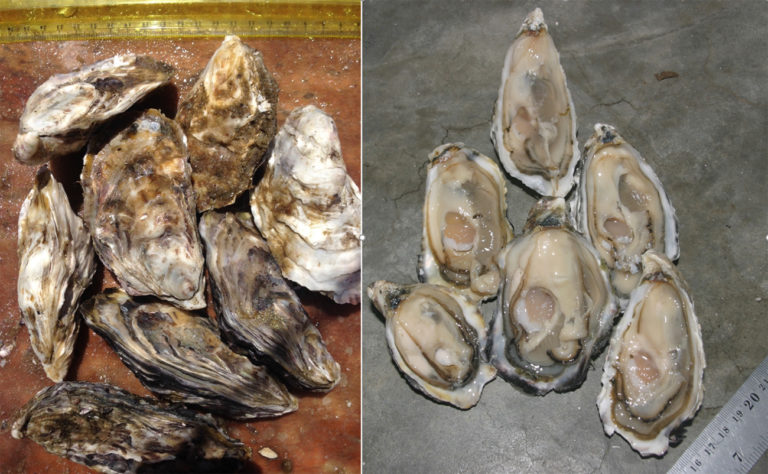
Intelligence
For shellfish farming in Namibia to continue expanding, industry must better comply with approved sanitation standards. The Namibian Shellfish Monitoring and Sanitation Program, currently in development, will help.

Innovation & Investment
With his book, “Aquaculture: Will it Rise to Its Potential to Feed the World?” hot off the presses, the pioneer abalone farmer vents on U.S. aquaculture regulations but remains deeply optimistic about fish farming.

Health & Welfare
A preliminary study investigated the effects of diet on the meat quality and shell color of Pacific abalone. A test diet and a commercial abalone feed resulted in lower meat protein content compared to that achieved with a diet of Pacific dulse seaweed. The artificial diets also caused the abalone to have yellow or orange shells. The seaweed diet alone resulted in abalone with dark-brown shells. However, a combination of seaweed and either artificial diet improved abalone growth, meat quality and shell color.
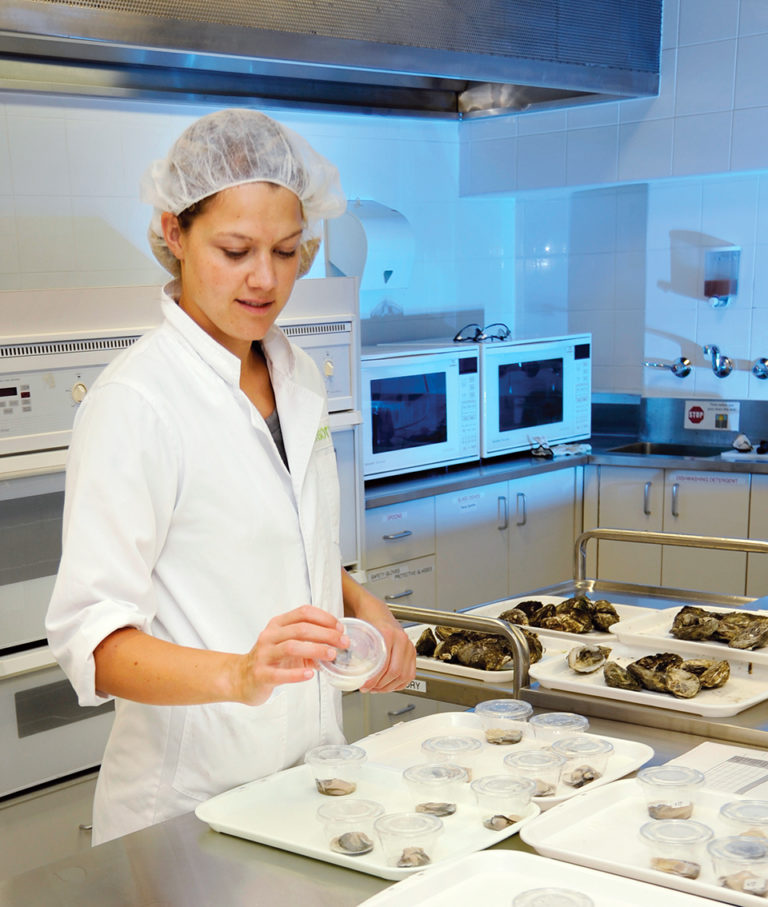
Intelligence
A pilot study on the sensory properties of Pacific oysters and abalone conducted at the CSIRO Sensory Laboratory in Australia found differences among the samples produced in different growing conditions and regions.
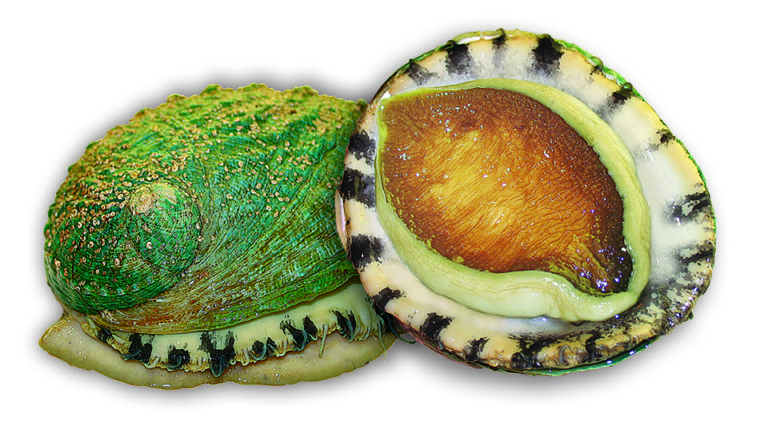
Health & Welfare
Collaborative work at Great Southern Waters has established a closed, genetically diverse breeding population of hybrid abalone. The breeding strategy is to produce and improve commercial stocks with the required hybrid traits by understanding the inheritance of those traits in the pure species and the hybrids.
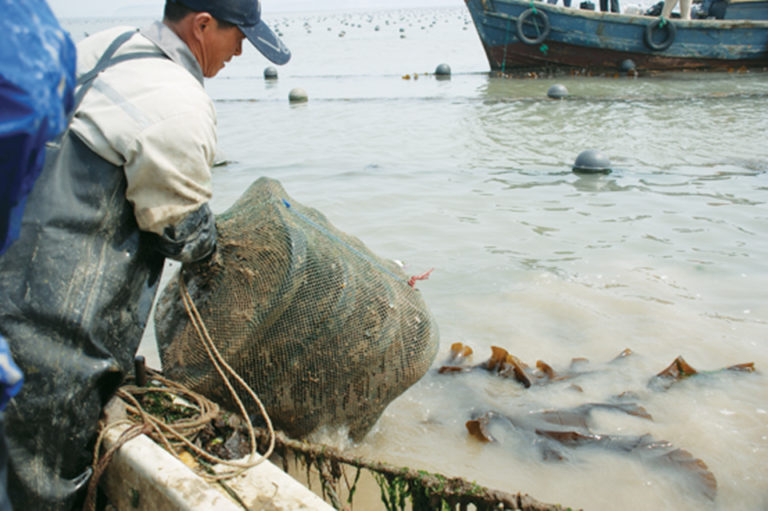
Responsibility
In the authors’ recent study, sea cucumbers were added directly to abalone cages with no modifications of the culture equipment to form a simple, low-cost IMTA production system.
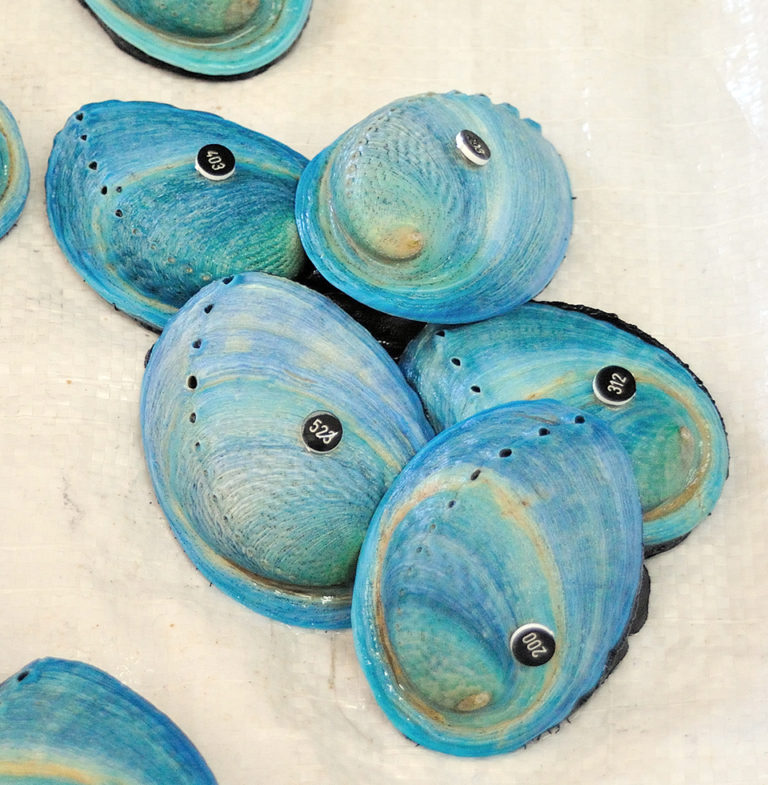
Health & Welfare
New Zealand’s National Institute of Water & Atmospheric Research has established broodstock research for several emerging species to provide genetically diverse, domesticated stocks for aquaculture industry expansion.
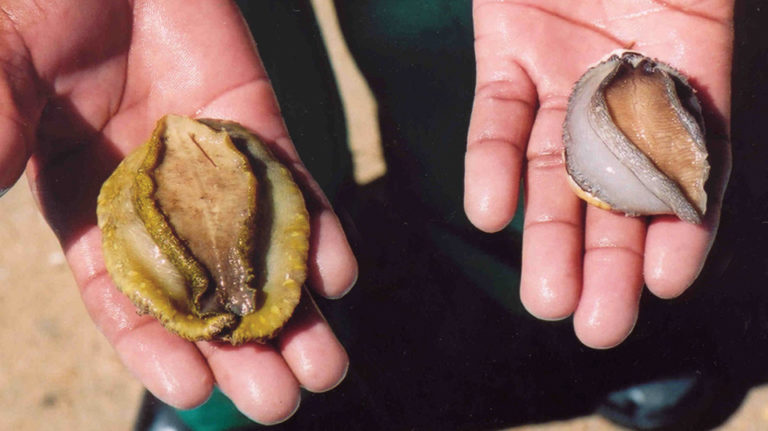
Health & Welfare
South African abalone culture is growing and many of the land-based tank production systems use wild-harvested kelp to feed the animals.
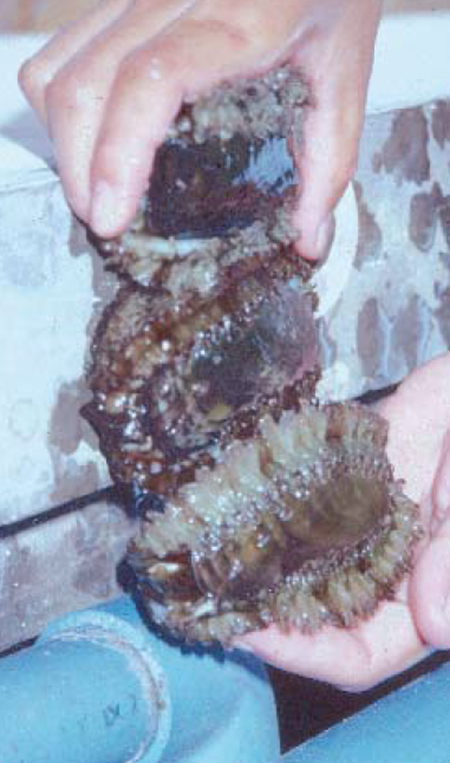
Intelligence
The relatively short culture period and an established export market for tropical abalone make it a strong aquaculture candidate.